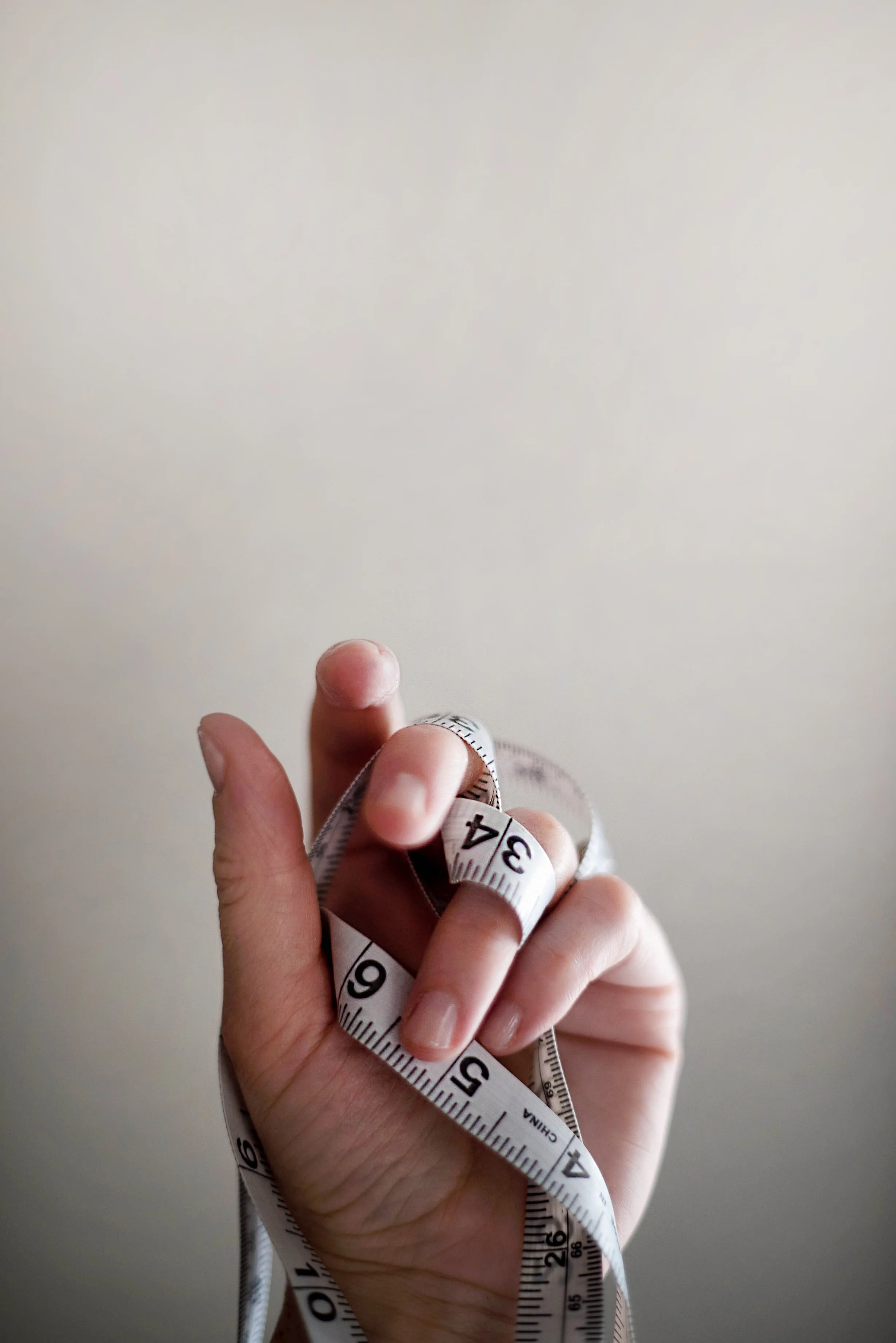I lift, do cardio, and eat clean-- but I can’t seem to build more muscle.
I dropped a few pounds for the first few weeks, but nothing has changed since then.
I’ve been running three times a week; yet my body looks the same!
If any of these statements sound like you and you’re frustrated by the lack of body composition progress, you might be wondering if you’ve been doing everything wrong.
What is really going on?
5 Reasons That Are Standing in the Way of Improving Your Body Composition
Like everything else in nutrition and fitness, there is no “one-size-fits-all” approach in improving body composition. You have to try out one possible fix after the other and make adjustments.
In this article, you’ll learn why you’re not seeing the results you want and be able to identify the adjustments that you can make to address these issues.
Before you revel in the aha! moments below, keep in mind that improving body composition is not mainly about getting from Point A to Point B as drastically as you can, but rather making slow yet substantial changes in between Points A and B.
YOU ARE NOT SLEEPING ENOUGH.
As we’ve previously discussed in detail, getting enough sleep is necessary (and not merely a luxury) if you want to change your body composition.
For instance, if you’ve been working on increasing muscle mass, you have to make sure that certain hormones in your body are doing their jobs. These include your growth hormone (GH), testosterone, and cortisol levels.
First off, your growth hormone plays a huge role in muscle growth and development. In adults, growth hormone secretion is at its peak shortly after the onset of sleep-- that is during the first phase of slow-wave sleep (SWS) or Stage 3 sleep. Sleeping 7-8 hours per night can help to ensure you get enough cycles of SWS to promote GH secretion.
Another significant study, with findings published in the Journal of Clinical Endocrinology and Metabolism, revealed that GH intervention improved body composition in children with Prader-Willi syndrome, a genetic disorder characterized by weak and poor muscle development.
Fewer hours of sleep and not receiving enough bouts of SWS may also deprive your body of testosterone. This means trouble because the testosterone hormone is associated with increasing muscle mass. In a 2008 study showed that poorer sleep quality was associated with lower testosterone levels, causing unfavorable differences in body composition compared to those with better overall sleep quality.
You also have to worry about cortisol. Popularly known as a stress hormone, cortisol is the antithesis of GH and testosterone in terms of muscle mass development. One of its functions is to break down tissues- your muscle tissues for one- in order to provide you with energy if you’re truly dealing with something stressful. Sleep-deprived individuals have been shown to have increased cortisol levels the next evening, between 37-45% more than previous days.
YOUR GAME PLAN
Aim for at least 7 to 8 hours of sleep and stick to it consistently. This will help you get enough Stage 3 sleep, which in turn elevates your growth hormone and testosterone levels, while making sure that the rascal cortisol is under control.
2. You are chronically stressed.
Chronic is the keyword here. The occasional small doses of stress can help us get stuff done through cortisol providing quick bursts of energy and heightened memory. Having some form of adversity in our lives has also been shown to be beneficial in moderation. However, being chronically stressed is a different story.
Let’s go back to our favorite stress hormone— cortisol.
Just a month ago, the Obesity Journal published the findings of a study examining the link between cortisol levels and adiposity (being overweight or obese). After measuring the cortisol levels of 2,527 men and women who were over 50 years old, the researchers came up with this conclusion— the higher the cortisol levels, the greater the body weight, BMI and waist circumference. This was after controlling the factors that might be linked to obesity such as sex, age, ethnicity, and lifestyle habits. Plus, high cortisol levels were also associated with persistence of obesity over time amongst the subjects.
In short, you might not know it, but the buildup of daily stress can hinder you from making significant progress in improving body composition.
YOUR GAME PLAN
Whether it’s personal or work-related, stress happens. The good news is you can take steps to control how you feel. Some people utilize mindfulness meditation while others feel better by just laughing it out. You can also try going for a walk or taking a quick nap. Do whatever feels the most relaxing to you.
The most important thing is to always schedule a chunk of your day to do these self-care activities. Often, people tend to forget that self-care is a must, just like eating and sleeping.
3. You are relying too much on exercise, but your poor eating habits haven’t changed.
Eating out with friends or workmates seems easier than cooking at home all by yourself. Not to mention that you can’t just say no to second helpings of free lunches at work. So you promise yourself that you’re going to simply burn those extra calories later at the gym. It turns out that you may be doing more harm than good.
A 2012 study among Japanese adults found that while exercise intervention alone for achieving weight loss may work, combining diet and exercise efforts is most effective in weight reduction. On top of this finding, a systematic review of similar studies proved that exercise is associated with concomitant increase in caloric intake. In other words, it makes you eat more. If those extra calories are “reward” calories like a sugary soda or piece of cake, you may be offsetting the fat you burned off during exercise.
YOUR GAME PLAN
Reexamine your food choices and experiment with cutting down on highly processed foods or certain food groups. If possible, try keeping a food journal for a couple of months to help you get a sense of your eating habits. For some folks, calorie counting works. Others have the greatest success when they went low-carb, high-fat, or did intermittent fasting alongside their exercise programs, but the biggest goal is to understand and balance your caloric goals when your diet and exercise routines change.
4. You have imbalanced blood sugar.
Here’s a recap of how insulin works. When blood sugar increases (usually after a meal), insulin delivers glucose (sugar) to the cells for energy. However, eating too often or overeating can make your body less sensitive to insulin’s effects. This elevated insulin level can also lead to an increase that pesky stress hormone, cortisol.
More importantly, when insulin resistance occurs, your cells cannot intake the sugar from your blood. As a result, the liver converts this sugar into triglycerides that are stored as existing body fat through de novo lipogenesis, just in case you’ll need them for energy in the future.
This could have been useful for our ancestors ages ago when there was shortage of food. Yet these days, food means opening your fridge or dropping by at the nearest convenience store. However, your body is unaware of this modern day fact, which in turn leads to unwanted weight gain.
For this reason, it may be beneficial to keep an eye on your blood sugar levels. Continued excess glucose loads can promote insulin sensitivity and lead to more complex metabolic abnormalities including Metabolic Syndrome. This can possibly be one of the reasons why fat mass remains stubborn despite working out or supposedly eating clean.
YOUR GAME PLAN
Excess carbohydrate consumption (pizza night or Pasta Thursday?) causing de novo lipogenesis can be mitigated by none other than exercise! Balancing your macronutrient intake or utilizing intermittent fasting (with guidance from your medical professional) can help you balance your insulin resistance without having to directly monitor blood sugar levels. Looking for more tips? Try blueberries or cinnamon!
5. Your exercise routine is not aligned with your body composition goals.
People have different body composition goals. You might want to reduce fat mass for now while your workout partner may be more interested in developing lean muscle mass. Working out together may be fun and engaging, but can also hinder your attempts to reach your personal body composition goals.
There’s also the issue on exercise intensity. This study found out that regardless of age, you’ll experience a significant increase in myofibrillar protein synthesis (increased muscle mass and strength) with more intense exercise.
This finding was supported by another study performed at the University of Ontario. The first group cardio trained for 30 to 60 minutes while the second group completed four to six 30-second sprints. And the results? Both cardio and sprint groups had the same amount of boost in lean muscle mass (around 1%), but the sprint group burned more than twice as much body fat than the cardio group, 12.4% and 5.8% respectively.
So if you’re looking into losing fat mass, increasing intensity for short intervals instead of steady state cardio may be your best bet. This article on bodybuilding vs. HIIT is a good start to learn more about the right exercise routine for you.
OTHER POSSIBLE REASONS
You’re still eating highly-processed foods disguised as healthy, like the ones with “low-fat” or “zero sugar” labels. Instead, exercise more diligence in your food choices by paying attention to nutrition labels.
You are underestimating alcohol. All those calories lost from workouts and clean eating can be canceled out if you’re having too much booze. First, alcohol is high in calories even in small amounts (7 calories per gram of alcohol, not to mention the drinks with alcohol and carbs). Second, food tends to taste better with booze. The more you drink, the more likely that you’ll eat more. With that said, go slow on the margarita and beer.
You have an existing medical condition that is possibly stopping you from losing weight and improving body composition. Sometimes, there are medications that can either cause weight gain or hinder significant body composition changes. In these scenarios, it might make sense to prioritize treatment of your existing medical condition or work with a healthcare professional to make lifestyle changes.
Wrapping It All Up: Try out different things
You don’t have to channel your inner mad scientist when trying out which fix is right for you. Do one tiny change at a time, give it at least 2-4 weeks, and take notes.
Start small by using honey and cinnamon instead of white sugar to add more flavor to your tea. How about not using electronic devices two hours before you sleep? Another good idea is to focus more on bodyweight exercises instead of your usual jogging routine.
Through self-experimentation, you not only become more aware of what works for you (and what doesn’t), but the process itself is also more rewarding and fun. No matter what the established facts and research findings will tell, you’ll know yourself better in the end.
***
Kyjean Tomboc is a nurse turned freelance healthcare copywriter and UX researcher. After experimenting with going paleo and vegetarian, she realized that it all boils down to eating real food.






